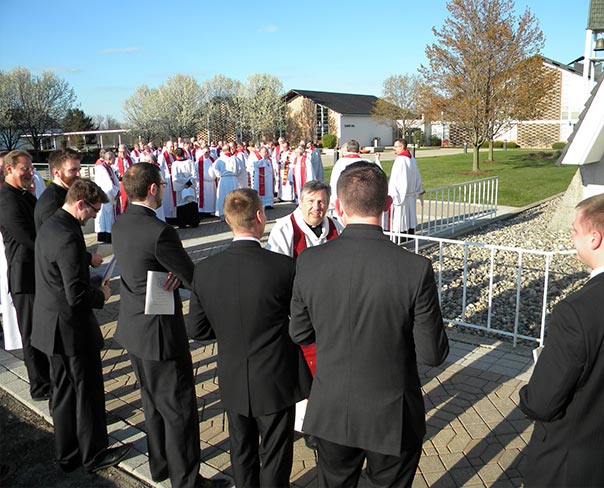In 2017, well before the COVID-19 pandemic, a Barna Group report also showed how the average age of Protestant pastors in the United States had increased by a decade over the previous 25 years, putting it just six years below the current minimum retirement age of 62. Only a fool would think that this has improved in the six years since that was recorded. In fact, in the LCMS we are told that some 40% of our clergy are at or past retirement age right now. Yet at this moment, we have fewer men in seminary than ever before. More than this, we have come to depend upon aging pastors to keep working at least part-time to keep the church doors open in places that once would have been ordinary places for a candidate to begin his service. Some of this is due to a shortage of financial resources but more of it has to do with a willingness to settle for what is easy and a short term fix for what is a long term problem.
Lutherans are not alone in this. Rome has priests serving well into their late 70s and 80s because they are facing an even more critical shortage. The ELCA is also facing its own clergy crisis. Rome has responded by making it harder to become a priest -- lengthening the time of seminary preparation by postponing diaconal ordination to after the completion of the seminary studies rather than in the final year of seminary training. The ELCA has been shutting down and merging seminaries largely due to declining enrollment until some of the programs are more houses of study within larger academic institutions rather than stand alone seminaries. Some have sold off their campuses to reduce their footprint due to a shift to online study that at least accompanies if not replaces residential seminary. The LCMS has tried both with a second class clergy that completes an online program with limited seminary training on site along with the primary residential programs -- but enrollment in both is not increasing and the demand is greater than the supply of seminarians. Clearly a streamlined approach is not the solution to all our problems. It is a vocational crisis.
In the LCMS, this has been met with a national emphasis and program to recruit pastors and other full-time church workers. It is not a bad program and you can look at it in detail here. The problem is that it is not the job of the national church or the seminary to recruit pastors and other church workers. It is the job of the family, the home, the pastor, and the congregation. We will not solve this problem until we truly believe at the level of home and family, pastor and congregation, that the highest calling is the pastoral office and the noble character of such auxiliary offices as are found necessary. We must do a better job of acting out what we say in words -- the importance of those who serve us in Christ's stead. We must encourage every young man early in his life to consider the pastoral office and every young man and woman early in their lives to consider other offices for full-time church work. This is not a luxury or option but an essential need and urgent necessity.

No comments:
Post a Comment